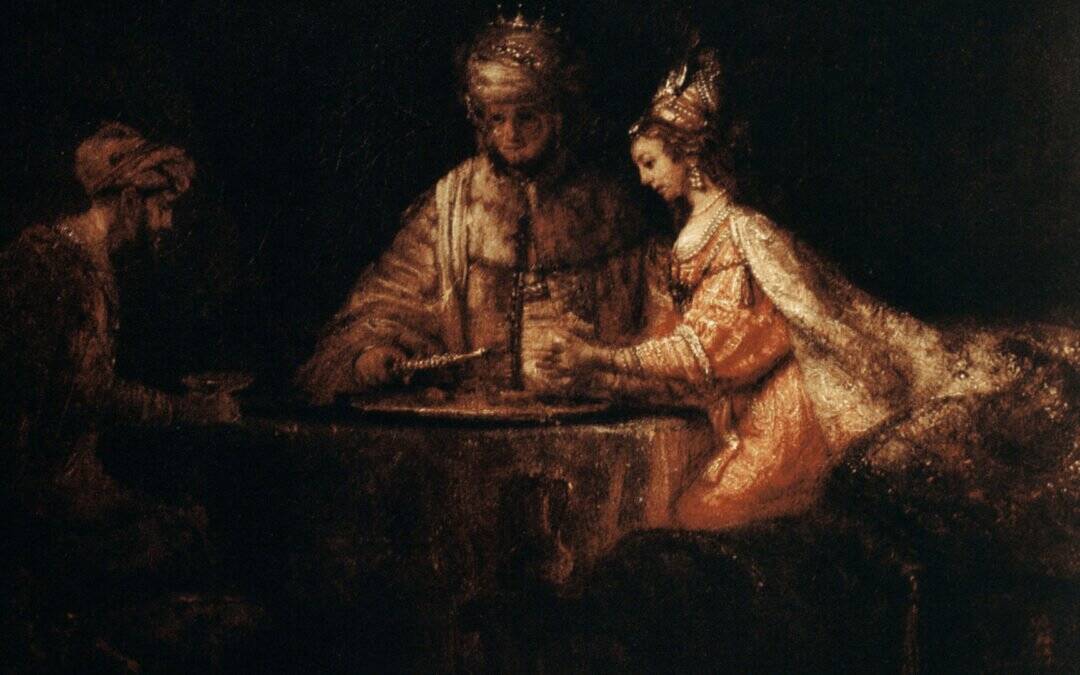Purim is not one of the seven annual feasts commanded by YHWH in Leviticus or in the Torah. In the time of Esther, the Jews made a custom for themselves to celebrate a two-day feast commemorating their victory over their enemies; they called this feast Purim and celebrate it to this day with feasting and sending food parcels to each other according to their tradition (Esther 9:26-27).
Note what was written by Mordecai:
Now in the twelfth month, which is the month of Adar, on the thirteenth day of the same, when the king’s command and edict were about to be carried out, on the very day when the enemies of the Jews hoped to gain the mastery over them, the reverse occurred: the Jews gained mastery over those who hated them…
Now the rest of the Jews who were in the king’s provinces also gathered to defend their lives, and got relief from their enemies and killed 75,000 of those who hated them, but they laid no hands on the plunder. This was on the thirteenth day of the month of Adar, and on the fourteenth day they rested and made that a day of feasting and gladness. But the Jews who were in Susa gathered on the thirteenth day and on the fourteenth, and rested on the fifteenth day, making that a day of feasting and gladness. Therefore the Jews of the villages, who live in the rural towns, hold the fourteenth day of the month of Adar as a day for gladness and feasting, as a holiday, and as a day on which they send gifts of food to one another.
And Mordecai recorded these things and sent letters to all the Jews who were in all the provinces of King Ahasuerus, both near and far, obliging them to keep the fourteenth day of the month Adar and also the fifteenth day of the same, year by year, as the days on which the Jews got relief from their enemies, and as the month that had been turned for them from sorrow into gladness and from mourning into a holiday; that they should make them days of feasting and gladness, days for sending gifts of food to one another and gifts to the poor.
So the Jews accepted what they had started to do, and what Mordecai had written to them. For Haman the Agagite, the son of Hammedatha, the enemy of all the Jews, had plotted against the Jews to destroy them, and had cast Pur (that is, cast lots), to crush and to destroy them. But when it came before the king, he gave orders in writing that his evil plan that he had devised against the Jews should return on his own head, and that he and his sons should be hanged on the gallows. Therefore they called these days Purim, after the term Pur. Therefore, because of all that was written in this letter, and of what they had faced in this matter, and of what had happened to them, the Jews firmly obligated themselves and their offspring and all who joined them, that without fail they would keep these two days according to what was written and at the time appointed every year, that these days should be remembered and kept throughout every generation, in every clan, province, and city, and that these days of Purim should never fall into disuse among the Jews, nor should the commemoration of these days cease among their descendants.
Then Queen Esther, the daughter of Abihail, and Mordecai the Jew gave full written authority, confirming this second letter about Purim. Letters were sent to all the Jews, to the 127 provinces of the kingdom of Ahasuerus, in words of peace and truth, that these days of Purim should be observed at their appointed seasons, as Mordecai the Jew and Queen Esther obligated them, and as they had obligated themselves and their offspring, with regard to their fasts and their lamenting. The command of Queen Esther confirmed these practices of Purim, and it was recorded in writing. (Esther 9:1, 16-32, ESV)
We recommend that if you consider that your family has “joined” to the Jews, you should strongly consider teaching your children what happened in the book of Esther. As Mordecai commanded for the first Purim celebration, make the 14th and 15th days of the 12th month a holiday (off school!) and use the time for feasting and gladness. Send gifts of food to others and if at all possible, give gifts to the poor. We have some resources below.
Online Resources
- 15-minute Purim play script
- Our family loves to dress up in costumes at Purim. We purchase costumes on sale in the fall and save them for now, or if we’re ambitious we make them. >> Learn more about why costumes are worn on Purim.
- Here is a fantastic list of crafts, activities, worksheets, and more!
- HomeschoolingTorah is aware of a handful of families with dire financial needs. If you would like to help some during your Purim celebrations, you can contact us privately.
Views: 32
